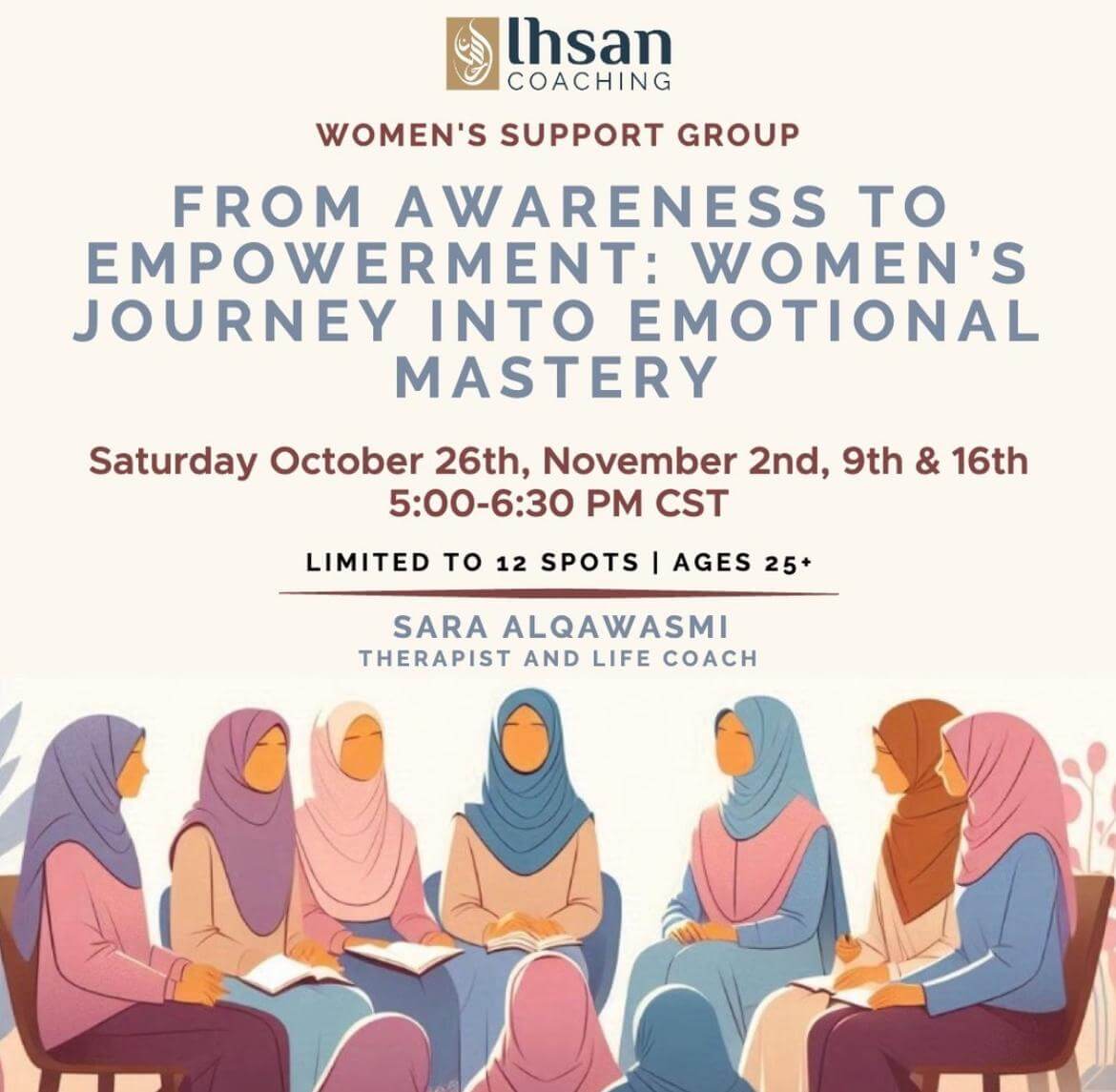When you’re feeling overwhelmed and lost in a sea of sadness that’s hard to explain, it’s easy to think that you’re struggling alone or that your faith isn’t strong enough. But depression isn’t a reflection of weak faith—it’s a challenge that touches many lives. You’re not alone. Islam has always acknowledged the importance of mental health. Even within the Muslim community, 1 in 5 people may face depression or anxiety. Beyond medical treatments, Islamic teachings provide spiritual guidance, with verses from the Quran offering comfort and healing. These teachings can help illuminate your path through the darkness, combining faith with actionable steps to overcome depression.
The Quran as a Source of Comfort
The Quran is often called a healing for believers, addressing the heart and mind. As Allah says:
“وَنُنَزِّلُ مِنَ الْقُرْآنِ مَا هُوَ شِفَاءٌ وَرَحْمَةٌ لِّلْمُؤْمِنِينَ“
“And We send down of the Quran that which is healing and mercy for the believers…” (Surah Al-Isra, 17:82)
This verse emphasizes that the Quran serves as a source of healing. The Islamic approach to depression encourages Muslims to find solace in the words of Allah, reminding them that suffering is temporary, and that Allah is always near.
Understanding Depression in Light of Islamic Teachings
What Causes Depression in Islam?
Depression can stem from various causes—personal loss, financial difficulties, relationship struggles, or health concerns. In Islam, worldly trials are seen as tests of faith, as Allah mentions in the Quran:
“وَلَنَبْلُوَنَّكُم بِشَيْءٍ مِّنَ الْخَوْفِ وَالْجُوعِ وَنَقْصٍ مِّنَ الْأَمْوَالِ وَالْأَنفُسِ وَالثَّمَرَاتِ وَبَشِّرِ الصَّابِرِينَ
“And We will surely test you with something of fear and hunger and a loss of wealth and lives and fruits, but give good tidings to the patient.” (Surah Al-Baqarah, 2:155)
This verse reassures Muslims that hardships are part of life and are designed to test their patience and trust in Allah. Recognizing this spiritual perspective helps in managing the emotional impact of these trials.
How Can Muslims Manage Depression Spiritually?
Muslims are encouraged to turn to Allah in times of despair. Dua (supplication) is a powerful tool in seeking Allah’s guidance and strength. The Prophet Muhammad (PBUH) also recommended the following dua when feeling anxious or stressed:
“O Allah, I seek refuge in You from anxiety and sorrow, weakness and laziness, miserliness and cowardice, the burden of debts and from being overpowered by men.” (Sahih al-Bukhari 6369)
Engaging in daily supplications allows Muslims to remain connected to Allah, alleviating feelings of isolation and sadness.

Practical Steps to Overcome Depression in Islam
Trust in Allah’s Plan (Tawakkul)
In times of hardship, the Quran emphasizes the importance of Tawakkul or placing complete trust in Allah’s plan. Allah reminds us:
“وَمَن يَتَوَكَّلْ عَلَى اللَّهِ فَهُوَ حَسْبُهُ“
“And whoever relies upon Allah – then He is sufficient for him.” (Surah At-Talaq, 65:3)
By trusting Allah’s plan, Muslims are reminded that everything happens for a reason, and no trial is more significant than what they can handle. This belief helps alleviate the sense of helplessness that often accompanies depression.
Prayer (Salah) as a Means of Relief
Prayer is not only a religious obligation but also a source of comfort. Performing Salah five times a day keeps Muslims grounded and connected to Allah, offering them peace and tranquility. It is said:
“يَا أَيُّهَا الَّذِينَ آمَنُوا اسْتَعِينُوا بِالصَّبْرِ وَالصَّلَاةِ ۚ إِنَّ اللَّهَ مَعَ الصَّابِرِينَ“
“O you who have believed, seek help through patience and prayer. Indeed, Allah is with the patient.” (Surah Al-Baqarah, 2:153)
This verse reinforces the idea that prayer and patience can help alleviate the weight of depression.
Engage in Dhikr (Remembrance of Allah)
Regular Dhikr helps calm the heart and mind. The Quran teaches:
“الَّذِينَ آمَنُوا وَتَطْمَئِنُّ قُلُوبُهُم بِذِكْرِ اللَّهِ ۗ أَلَا بِذِكْرِ اللَّهِ تَطْمَئِنُّ الْقُلُوبُ“
“Verily, in the remembrance of Allah do hearts find rest.” (Surah Ar-Ra’d, 13:28)
Reciting phrases like “Alhamdulillah” (Praise be to Allah) or “Astaghfirullah” (I seek forgiveness from Allah) daily can bring peace and shift the focus from negative thoughts to gratitude.
The Role of Patience and Gratitude in Overcoming Depression
Practicing Patience (Sabr)
Patient Muslims maintain hope and strength even under the most challenging circumstances because they know Allah will reward their tenacity.
Stressing Appreciation (Shukr)
Islam tells its followers to focus on the positive aspects of their lives despite melancholy, often leading to feelings of inadequacy. Gratitude, or sukkr, is the remedy for hopelessness. Muhammad (PBUH) once said, “Whoever is not grateful for the small things will not be grateful for the large things.” (Sunan Al-Tirmidhi, 1954)
Making it a practice to give thanks to Allah for His blessings regularly will help transform negative thinking into positive thinking.

Getting Professional Assistance in Addition to Spiritual Coaching
Muslims should not be afraid to seek expert assistance from Muslim therapists, when necessary, even though consulting Islamic scholars or coaches is always essential. Islam promotes a holistic strategy for healing that combines medical care with spiritual rituals. If depressive symptoms continue, seeking the advice of a licensed Muslim therapist or counselor—especially one who is familiar with Islamic values, can be a crucial step toward recovery.
How Ihsan Coaching Can Help with Depression
Ihsan Coaching provides religious consultation and individual coaching that combines Islamic principles with modern therapeutic techniques. Their tailored programs offer spiritual guidance, practical tools, and emotional support for Muslims struggling with depression. Whether you’re looking for religious counsel or need someone to help navigate difficult emotions, Ihsan Coaching‘s approach ensures a holistic recovery process.
FAQs
Q1: Is being depressed a sign of weak faith in Islam?
No, depression is not a sign of weak faith. The Quran acknowledges the trials of life, and even the prophets experienced sadness. Islam teaches that depression can be a test from Allah, and the important thing is how we respond to it through patience, prayer, and seeking help.
Q2: Can I overcome depression by only relying on prayer?
Prayer is a powerful tool in alleviating depression, but it is also essential to seek medical and psychological help if necessary. Islam encourages a balanced approach and combining spiritual and medical guidance is often the most effective.
Q3: What are the best Quranic verses for depression?
Several Quranic verses offer comfort and guidance during the depression, including Surah Al-Inshirah (94:5-6), where Allah says, “For indeed, with hardship [will be] ease.”
Q4: How does gratitude help in overcoming depression in Islam?
Gratitude shifts your focus from what you lack to what you have, cultivating a sense of positivity. By being grateful to Allah for small blessings, you can reframe your thoughts and combat feelings of sadness.
Q5: Does Islam permit therapy for mental health issues?
Yes, Islam encourages seeking treatment for mental health. Therapy can be a valuable tool alongside spiritual practices in managing depression.
Finding Solace in the Quran
Depression is a reality for many Muslims, but the Quran offers numerous paths to relief and healing. Islam provides its followers with tools to navigate life’s challenges, such as prayer, remembrance, gratitude, and patience. If you or someone you know is struggling with depression, consider reaching out to Ihsan Coaching for personalized support. They combine Islamic principles with practical therapeutic methods, offering individual coaching that aligns with your faith and needs.
About Aasia Nadhira:
Aasia Nadhira is a dedicated and compassionate mental health professional with a profound commitment to fostering healthy relationships within the Muslim community. Already holding a Master’s degree in Psychology from the University of Madras, Aasia is currently enhancing her expertise by pursuing a second Masters in Family Therapy from Touro University in California.
Read more about Aasia Nadhira

